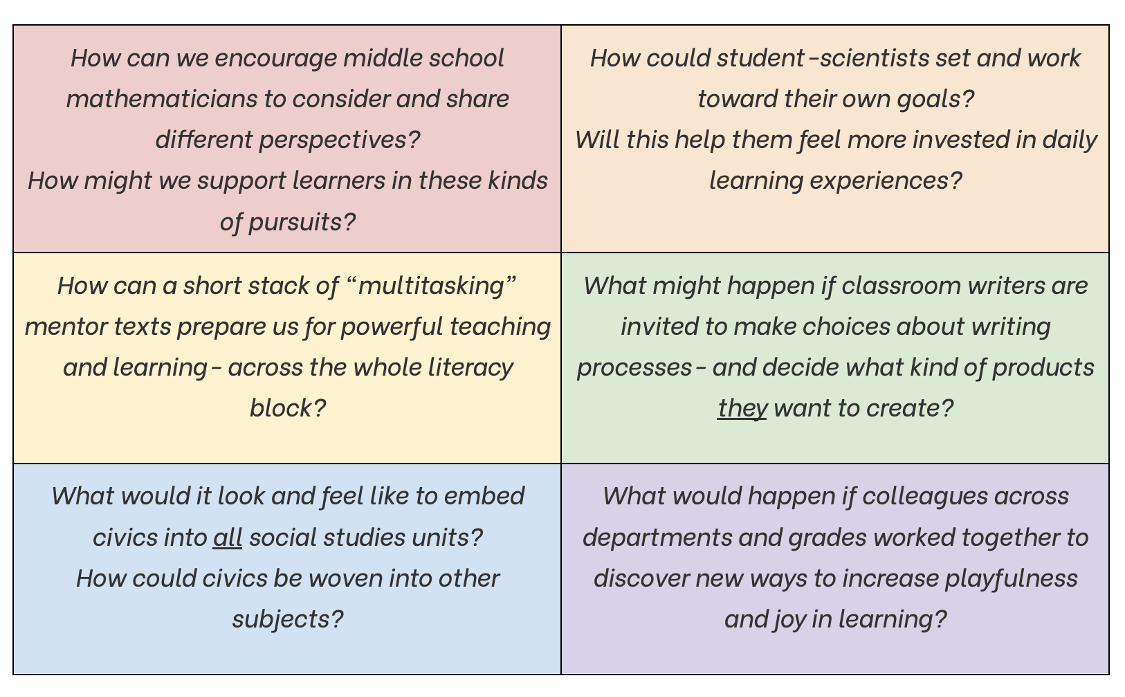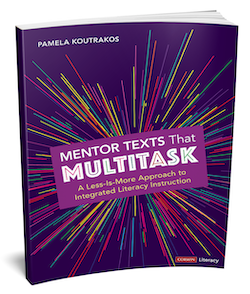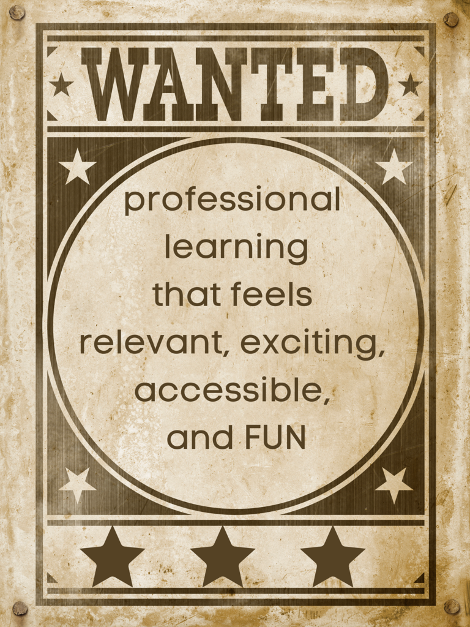Infusing Discovery into Instructional Coaching
By Pam Koutrakos

They also sometimes feel…predictable. Perhaps that’s why I have also come to embrace collaborative inquiry as an additional highly effective coaching strategy.
In the classroom, educators use inquiry-fueled methods to pique student interest, invite critical thinking, and support deep learning that transfers. Adults also deserve the chance to partake in similar types of playful and imaginative professional learning.
Last summer, I wrote about community-centered coaching, a human-centered approach to professional learning that includes and targets the wants and needs of everyone in the school community. Using collaborative inquiry is one more example of community-driven professional learning. This method of collegial coaching is not about imparting knowledge. Instead, it’s about reflecting, imagining, exploring, and problem-solving – together!
Co-designing our collaborative inquiries
Codesigned inquiry ignites creativity and fosters a mindset of innovation. Moreover, discovery-rich coaching cycles yield powerful results for everyone involved. There’s no doubt that playful collaboration is a worthy pursuit; it nourishes our teaching souls and improves instructional practice.
Here are a few examples of collaborative inquiries I’ve recently explored with colleagues:

- What is already in place? What could come next?
- What feels most important and relevant to the people involved?
- How could other community members be invited into these experiences?
- How can we co-construct learning? How will decision-making be shared?
- What could we create? What action will be taken? What change could result?
- How might we share our discoveries with others? How will we contribute to the community?
The coach and teacher(s) use initial musings to shape schedules and build learning structures. Just like in classroom inquiry, there is prioritized time to observe, wonder, investigate, create, try, reflect, adjust, and reimagine. Essentially, this active stance toward professional learning repeats on a loop for the duration of the collaborative experience.
Leaning into the thrill of open-ended learning
Discovery-driven coaching dares us to lean into the thrill of more open-ended learning processes. The most successful inquiry-based coaching cycles are unique, responsive, and personalized. I’ve been lucky enough to partake in collegial adventures that lasted one period, one week, one month, one trimester, and an entire school year.
At times I have used this template to guide these shared journeys. However, I usually find that previously created structures and planning forms often get tweaked (and/or overhauled) by the people involved in the process. In fact, that is part of the fun! No two cycles look or feel exactly the same.
There are countless options for sparking a renewed interest in professional risk-taking! Inquiry-based coaching cycles are one way to boost playfulness and bolster a stronger sense of community.
What professional learning experiences invite intrigue and investment where you work? What else might you imagine trying in the weeks and months ahead?

Pam regularly presents at conferences and events across the country. Connect with Pam on Twitter (@PamKou), Instagram (@Pam.Kou), and LinkedIn. See her other MiddleWeb articles here.





































